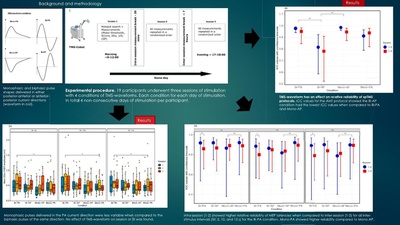
Corrected QT Interval (QTc) Diagnostic App for the Oncological Routine: Development Study
18 September 2023
Abstract
Background:Numerous antineoplastic drugs such as chemotherapeutics have cardiotoxic side effects and can lead to long QT syndrome (LQTS). When diagnosed and treated in time, the potentially fatal outcomes of LQTS can be prevented. Therefore, regular electrocardiogram (ECG) assessments are critical to ensure patient safety. However, these assessments are associated with patient discomfort and require timely support of the attending oncologist by a cardiologist.
Objective:This study aimed to examine whether this approach can be made more efficient and comfortable by a smartphone app (QTc Tracker), supporting single-lead ECG records on site and transferring to a tele-cardiologist for an immediate diagnosis.
Methods:To evaluate the QTc Tracker, it was implemented in 54 cancer centers in Germany. In total, 266 corrected QT interval (QTc) diagnoses of 122 patients were recorded. Moreover, a questionnaire on routine ECG workflow, turnaround time, and satisfaction (1=best, 6=worst) was answered by the centers before and after the implementation of the QTc Tracker.
Results:Compared to the routine ECG workflow, the QTc Tracker enabled a substantial turnaround time reduction of 98% (mean 2.67, 95% CI 1.72-2.67 h) and even further time efficiency in combination with a cardiologic on-call service (mean 12.10, 95% CI 5.67-18.67 min). Additionally, nurses and patients reported higher satisfaction when using the QTc Tracker. In particular, patients’ satisfaction sharply improved from 2.59 (95% CI 2.41-2.88) for the routine ECG workflow to 1.25 (95% CI 0.99-1.51) for the QTc Tracker workflow.
Conclusions:These results reveal a significant improvement regarding reduced turnaround time and increased user satisfaction. Best patient care might be guaranteed as the exposure of patients with an uncontrolled risk of QTc prolongations can be avoided by using the fast and easy QTc Tracker. In particular, as regular side-effect monitoring, the QTc Tracker app promises more convenience for patients and their physicians. Finally, future studies are needed to empirically test the usability and validity of such mobile ECG assessment methods.
Trial Registration:ClinicalTrials.gov NCT04055493; https://classic.clinicaltrials.gov/ct2/show/NCT04055493
JMIR Cardio 2023;7:e48096
doi:10.2196/48096






